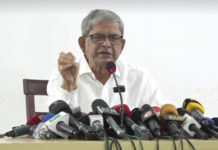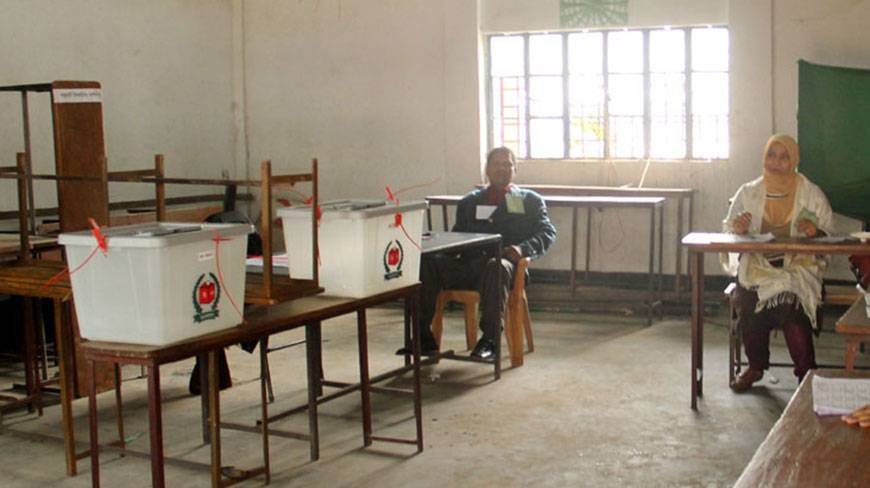M. I. Ali
Bangladesh is unique in many ways, but the one that sets it aside from all other countries of the world is that it has two major political groupings, one comprising 18 parties and the other 14, both of which are in the opposition. This is unique because in all other countries the normal practice is to have one party in the government and the other in the opposition. To be more specific, in the political matrix of a country, the party in power, popularly referred to as the incumbent, when parliamentary elections approach, is usually busy highlighting its achievements during its tenure, while the party in opposition tries to point out to the electorate, what it would consider to be the government’s failures. Another important component of their campaign would be to present their future plans, what they would do if they are voted to power.
Not so in Bangladesh. The 18-party combine led by Khaleda Zia is the official opposition block in the Parliament and is playing its due role as the opposition party. It is playing out its traditional role of highlighting what it considers to be the failures of the government in the last four and a half years. It is also calling the people’s attention to the corruption and extra legal activities of the party in power.
It would seem that the 18-party combine is successfully playing its role in making the voters aware of what it considers to be the failures and corruptions of the government. It also appears that they have managed to gain the sympathy of the people to the politically motivated harassment of the opposition party leaders and workers. Bangladeshis have always supported the underdogs and this perceived persecution by the government of the opposition has won the sympathy of the voters.
Religion is another issue where the 18-Party Combine is scoring points. The biggest mistake that the government may have made at the Shapla Chattar was to have switched off the two TV stations that were covering the gathering there.
This sparked rumours of such proportions that the government is finding it hard to dispel it from the minds of the people. Had the TV stations been allowed to continue their coverage, the viewers would have seen that nothing much really happened and perhaps no massacre actually took place. Now there is no going back. The Ganajagaron Manch is another issue that seems to have boomeranged. The first couple of days successfully attracted people’s attention. It fell from grace the moment the perception that the government was patronizing it started creeping into people’s minds. Hefazat’s opposition of their programme painting them anti-Islamic was also not convincingly debunked. The government party could not convince the people that secularism did not mean being anti-Islamic, that a secular Muslim is a good Muslim.
The state run television BTV also contributed to this misunderstanding. BTV, which covers the entire Bangladesh usually depicts secular Bengali culture as being dominated by the culture and traditions of a religious minority. This has given the impression to the rural people that Islam and secularism are mutually exclusive. To the vast majority of the people of this country Islam is not a communal force, it has coexisted peacefully with other religions in this country for more than a thousand years and any attempt to vilify this is not acceptable to them.
The other group, the 14-Party Mega Combine led by Sheikh Hasina, while being the parties in power, is concentrating all their energies to discredit the parties that were in power SEVEN years ago. It seems that the 14-Party Combine is still in the opposition to a government that was in power seven years ago and not the party in power today. This strategy unfortunately is not working at all. In fact, the more the 14-Party Combine recalls the corruption and state terror that took place seven years ago, the more it reminds the people of what is happening in the country today.
The digital Government has to be more pro-active. It is not too late to recall the ground realities that led Prime Minister Sheikh Mujibur Rahman to join the Organisation of Islamic Conference (OIC) in its meeting in Lahore, Pakistan at a time when Bangladesh was yet to recognize that country. He knew that secular Bangladesh did not exclude the Islamic character of the vast majority of its people. This is probably why he was what he was.
Thus, it will be best for the 14-Party Combine to give up trying to discredit what happened seven years ago and concentrate on identifying the real issues that are behind its rising unpopularity. Once they identify the real issues, there is still time for it to initiate damage control measures.
Source: Weekly Holiday










